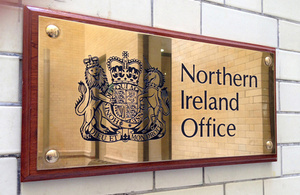UK launches Global Health Insurance Card
-
UK’s new Global Health Insurance Card (GHIC) launched as part of UK / EU deal
-
Global Health Insurance Card (GHIC) will gradually replace existing European Health Insurance Cards (EHIC)
UK residents will now be able to apply for a UK Global Health Insurance Card (GHIC), the government announced today.
Under Britain’s new agreement with the EU, UK residents’ rights to emergency and medically necessary healthcare will continue when travelling in the EU. This includes medically necessary treatment for a pre-existing or chronic condition.
Current European Health Insurance Cards (EHIC) are valid as long as they are in date and people can continue to use these when travelling to the EU.
The public only need to apply for their new GHIC when their current EHIC expires. Both cards will offer equivalent protection for emergency and medically necessary healthcare needs when in the EU on a temporary stay, which includes holiday, study and business travel.
The new GHIC card is free to obtain from the official GHIC website. People should apply at least 2 weeks before they plan to travel to ensure their card arrives on time.
Minister for Health Edward Argar said:
Our deal with the EU ensures the right for our citizens to access necessary healthcare on their holidays and travels to countries in the EU will continue.
The GHIC is a key element of the UK’s future relationship with the EU and will provide certainty and security for all UK residents.
Cover for emergency and medically necessary healthcare is part of a wider healthcare agreement struck with the EU that will see continued cooperation on healthcare for UK residents.
If a UK resident is travelling without a card, they are still entitled to necessary healthcare and should contact the NHS Business Services Authority (NHS BSA) (which covers the whole of the UK), who can arrange for payment should they require treatment when abroad.
EU member state EHICs will continue to be accepted by the NHS.
Alongside the deal with the EU, the UK is open to agreeing further reciprocal healthcare arrangements that can support UK residents when they travel.
The government always advises that anyone travelling overseas, whether to the EU or elsewhere in the world, should take out comprehensive travel insurance.
Background information
All UK residents are eligible to apply for a GHIC which will be valid and recognised in the EU.
GHIC is free via the official website. Any sites which include a charging fee are in no way affiliated with the official NHSBSA GHIC service.
The government recognises sensitivities around flags in Northern Ireland. As such, residents in Northern Ireland will be provided with an option to choose an alternative version of the GHIC card, which they will be able to apply for shortly. Keep checking www.nhs.uk/GHIC for updates.
Under existing Common Travel Area arrangements with Ireland, UK residents will continue to be able to access necessary healthcare in Ireland by showing proof of residency documentation (such as a UK driving licence, a biometric residence permit, or a Northern Irish medical card) or EHIC or GHIC as used elsewhere in the EU.
The GHIC covers medically necessary state-provided healthcare at a reduced cost or, in many cases, free of charge, until your planned return home.
A temporary stay is a period during which you are staying in a place other than the one where you usually live and you do not move your ‘centre of interest’ there. For example, this can include holiday, study and business travel.
Necessary healthcare means healthcare that becomes medically necessary during your stay and for which you cannot reasonably wait until you’re back in the UK to get. This includes medically necessary treatment for a pre-existing or chronic condition. Some treatments will need to be pre-arranged with the relevant healthcare provider in the country you’re visiting, for example kidney dialysis or chemotherapy.
Necessary healthcare does not include healthcare that you travel specifically to receive, although individuals who want to seek planned treatment in a member state may be covered under the broader healthcare arrangements with the EU. Read more information on planned treatments.
If a UK resident requires emergency or medically necessary treatment while in the EU, and doesn’t have a GHIC or EHIC, a Provisional Replacement Certificate (PRC) can be obtained which will provide the same coverage for healthcare as GHIC or EHIC. The PRC can only be requested at the point of requiring care; it’s not possible to request a PRC in advance of a trip. UK nationals can contact NHSBSA on +44 (0)191 218 1999 should a PRC be required.
UK nationals living in the EU, EEA and Switzerland and EU, EEA and Swiss nationals living in the UK, who are eligible under the Citizens’ Rights Agreement for reciprocal healthcare based on current EU regulations, can continue to apply for an EHIC.
The UK is seeking to conclude new, comprehensive agreements on social security coordination, including reciprocal healthcare, with the EEA EFTA States and with Switzerland.
Until a new agreement is in place, the UK and Norway will apply, on a temporary basis, an amended version of the 1991 Convention on Social Security and Protocol on Medical Treatment between the governments of the UK and Norway. This includes necessary healthcare.
The rest-of-the-world (RoW) countries we currently have reciprocal healthcare agreements with are Australia, New Zealand, some Crown Dependencies and overseas territories (such as Isle of Mann, Jersey, Gibraltar), and some Balkan states (Bosnia, Serbia, Montenegro, Kosovo). Different proofs of eligibility are required under these agreement. Read more travel advice information.



